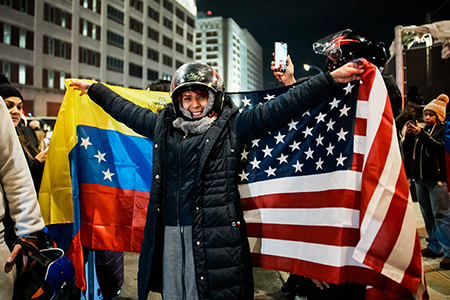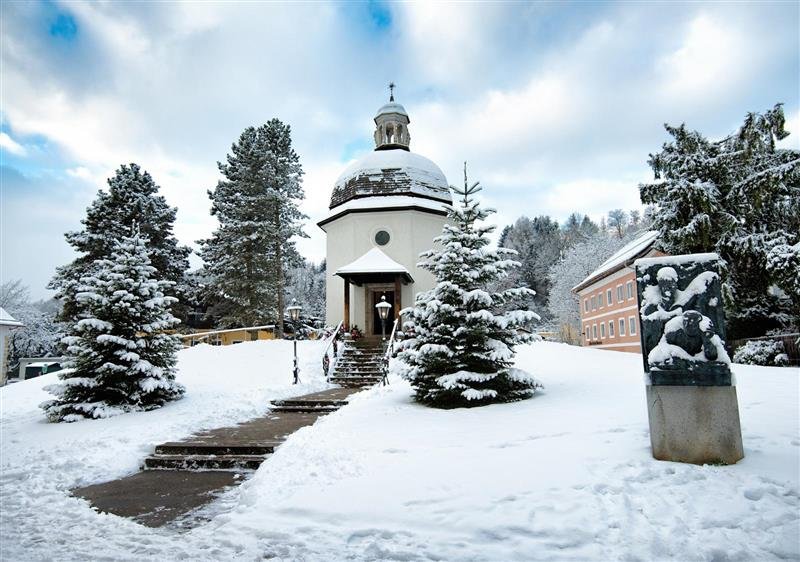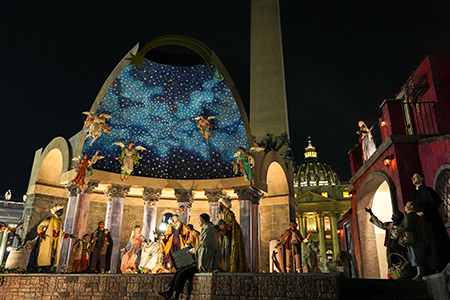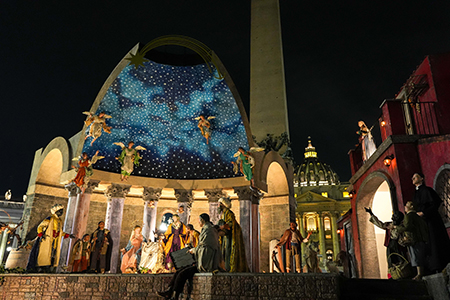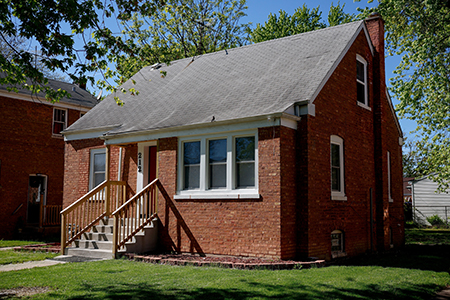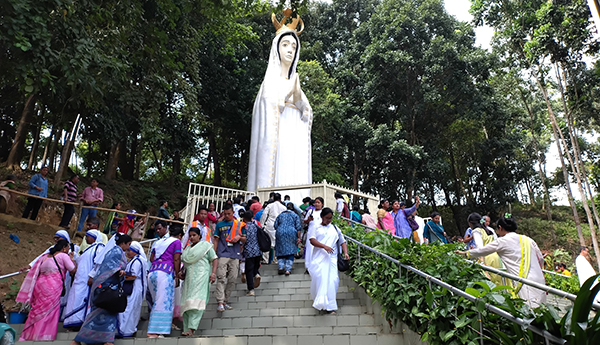
NATION
BLOOMINGTON, Ind. (OSV News) – As he waited for the announcement of who would win the Heisman Trophy – awarded to the best college football player of the year – Dominican Father Patrick Hyde turned to one of his fellow friars and said, “I have never been so invested in the outcome of an award.” After all, Father Hyde has become a big fan of Fernando Mendoza, the star quarterback of the football team at Indiana University in Bloomington, where the priest serves as pastor of St. Paul Catholic Center on the school’s campus and where Mendoza has attended Mass. Father Hyde not only celebrates the football player that Mendoza is, he also appreciates the person Mendoza is and the way the quarterback embraces his faith in God. So, when Mendoza was announced as the winner of the Heisman on Dec. 13 in a ceremony in New York City, Father Hyde rejoiced with the other friars watching the event on television. His speech was also an all-inclusive thank-you to all the people who have made a difference in his life, starting with the way he has begun nearly every post-game interview this season. Mendoza thanked God, his family, team and community. “This moment is an honor. It’s bigger than me,” he said.
BEL AIR, Md. (OSV News) – Well before he was a University of Maryland transfer who used his final year of college football eligibility to become a major success story as a running back at Indiana University, Roman Hemby said he owed much credit to John Carroll School in Bel Air for instilling vital Catholic values that guide him today. Hemby, a Maryland graduate who grew up in Edgewood, is one of numerous transfers who have turned the 2025 Indiana Hoosiers into a No. 1-ranked, unbeaten (13-0) powerhouse. The Hoosiers entered the College Football Playoff as its No. 1 seed. “I had the utmost faith that things would work out. The atmosphere at John Carroll let me know that God had a plan for me,” said Hemby.
VATICAN
ROME (CNS) – Pope Leo used his first New Year’s address to the diplomatic corps Jan. 9 to strongly defend marriage, family life and the unborn, urging nations to prioritize the protection of life over policies he called harmful to human dignity. Speaking in English to diplomats accredited to the Holy See, the pope said abortion “cuts short a growing life” and fails to welcome life as a gift. He reaffirmed Catholic teaching on marriage as the exclusive and indissoluble union of a man and a woman, saying this bond grounds the vocation to love and to life. Pope Leo warned that families face growing marginalization and increasing fragility, brought about by various circumstances, including domestic violence and social pressures. He criticized the use of public funds for abortion, including cross-border efforts to access what he called the “so-called right to safe abortion,” and strongly rejected surrogacy and euthanasia. Instead, he said, society and governments “have a responsibility to respond concretely to situations of vulnerability” and offer solutions and “policies of authentic solidarity.” The pope said a society truly progresses only when it safeguards every human life, from conception to natural death.
WORLD
BETHANY BEYOND THE JORDAN, Jordan (OSV News) – Catholics from across Jordan and around the world gathered Jan. 9 at the site of Jesus’ baptism on the Jordan River to celebrate Epiphany, marking the place the Catholic Church recognizes as the beginning of Christ’s public ministry. Clergy from multiple Eastern and Western Catholic rites joined in the liturgy, renewing a global call for pilgrims to visit one of Christianity’s most sacred sites. The celebration included Mass at the newly consecrated Catholic Church of the Baptism of Jesus Christ, inaugurated by Cardinal Pietro Parolin, Vatican secretary of state, in January 2025. Despite cloudy skies, rain paused during the Mass – a moment the faith leaders called a sign of blessing in water-scarce Jordan. Church officials highlighted Jordan’s unique role in Christian history, noting it is the only country visited by four popes. Leaders also voiced hope for renewed peace in the region and invited pilgrims worldwide to encounter faith as a journey rooted in baptism, reconciliation and hope. Bishop Iyad Twal, patriarchal vicar of Jordan, told reporters that some calm and peace has returned to neighboring Palestine and Gaza. He said Cardinal Pierbattista Pizzaballa, Latin Patriarch of Jerusalem, was heartened during a recent visit to the coastal enclave to see “a genuine determination to begin new life with optimism.”
BOGOTÁ, Colombia (OSV News) – The Catholic bishops of Latin America and the Caribbean have expressed their pastoral closeness to the people of Venezuela, following a Jan. 3 U.S. military intervention that saw the capture of President Nicolás Maduro and his wife, Cilia Flores, and claims of a temporary takeover of the country before Maduro’s vice president, Delcy Rodríguez, was sworn in as Venezuela’s interim president. In a Jan. 5 letter, the bishops of the Latin American and Caribbean Episcopal Council, known as CELAM, shared what they called a “simple, fraternal and hopeful” message marking the Epiphany of the Lord – an event that reveals “a God who is close to his people, who walks with them, illuminates the darkness, and opens new paths even when everything seems uncertain.” In their letter, the bishops said they “share and embrace with a profound pastoral sense the words of Pope Leo XIV, who spoke about the situation in Venezuela and reminded us that the good of the people must always be above any other consideration.” The bishops stressed, “We want to reiterate that you are not alone. CELAM walks with you and with the Venezuelan people, encouraging every effort to build bridges, heal wounds, and advance reconciliation, without excluding anyone. The Church is called to be an open house, a space for encounter, and a serene voice that inspires hope, even in the midst of difficulties.”

